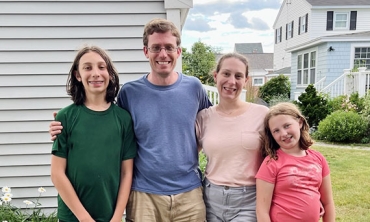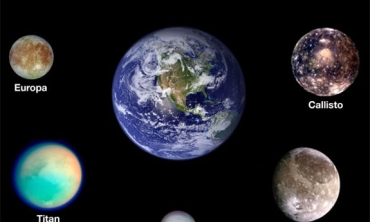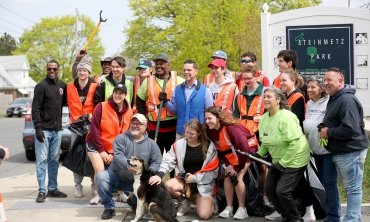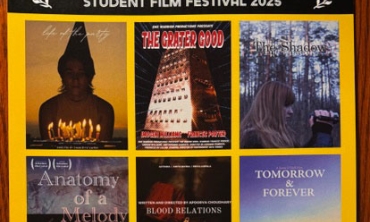Growing up in Lake Placid, N.Y., Maeve Daby ’23 was surrounded by nature. The rolling hills, hiking trails and fresh mountain air provided countless opportunities for Daby to experience breathtaking natural beauty.
Working in the Kenney Community Center, Daby realized that many of the middle and high school students it serves do not have those opportunities.
Daby wants to change that.
As a summer research fellow at the Kelly Adirondack Center, Daby created an educational initiative for students in Union’s summer Science and Technology Entry Program (STEP). STEP helps prepare historically underrepresented and economically disadvantaged students to enter college and increase participation in math, science, technology, health-related fields and licensed professions.
“I hope to have a positive impact on the student's level of preparedness or comfort in the wilderness, and inclination towards pursuing similar activities in the future,” said Daby, a double major in Spanish and Hispanic studies, and sociology, with a minor in philosophy.
Working with her adviser, David Cotter, professor of sociology, Daby weaved together three components for a dozen seventh and eighth-grade students. The first was a nature walk through the H.G. Reist Sanctuary, a 111-acre preserve that borders the Kelly Adirondack Center.
Students relied on navigation and trail sign comprehension lessons administered by Daby in a pre-test before the hike.
“I want the students to learn about self-reliance, resilience, self-expression and the beauty of solitude,” Daby said. “More importantly, I want to provide them with an outlet for expression and activity that is unchanging. I saw how the pandemic has negatively affected kids. They have had to adapt to so many changes and uncertainties that I think a constant source of fun and adventure would really benefit them.”
The second part of her program was aimed at the difference between seeing and observing.
“We can all see the same object or event, but everyone observes different details and aspects that they consider to be the most important,” she said. “I allowed the students to take turns navigating for us during our nature walk, making decisions at crossroads and pointing out the interesting things they observed in our travels.”
The final part focused on the principles of Leave No Trace, a series of best practices to enjoy and protect natural spaces. Daby provided the students with a list of resources, including rules and regulations of specific nature preserves and parks she recommended.
“I want to take the guesswork out of wilderness recreation for these students, giving them all the tools they need so that they can leave my program excited about their next adventure, not worrying about how they are going to get there or if they are going to inadvertently break a rule while there,” she said.
Daby shared her expansive program with the STEP students last Friday.
“For most of the students, this was the first time they experienced hiking in the woods,” said Kevin Trigonis, director of Union’s STEP. “This was an awesome opportunity for the students to explore nature in their backyard and learn about the resources readily available to them and their families.”
Using pre and post-test data collected from the students, Daby will now analyze the effectiveness of her program with Professor Cotter. She also plans to present an outline of resources and her findings to local governments.
“Hopefully this will inspire conversation around how to incorporate these types of programs into early childhood education and the benefits of raising a child who is able to find solace in nature, even in an urban environment like Schenectady,” said Daby, who plans to attend law school after Union.
Besides Cotter, others who assisted Daby during her research included Margie Amodeo and Doug Klein from the Kelly Adirondack Center; Paul Hai, professor at SUNY College of Environmental Science and Forestry; and Dan Kriesberg, an environmental writer and educator.
The summer research fellowship offered through the Kelly Adirondack Center is a competitive program open to students enrolled in an undergraduate, master’s or doctoral program. Fellows conduct independent research on an issue related to the Adirondacks or the environment. Students are encouraged to use the center and the collections in its Adirondack Research Library.
Each fellow receives a stipend and, if needed, a housing allowance.
“Maeve's work this summer really speaks to the core mission of the Kelly Adirondack Center,” said Amodeo, the center’s coordinator. “Our goal is to engage the campus community and the wider public in discussions of the relationships between nature and society. Maeve explored ways to actively engage children in this conversation while their personal relationship with nature is still in very formative years.
“Her objective of developing a deeper understanding and appreciation of the natural world will not only contribute to a greater degree of comfort in natural settings, but also help them engage critical thinking skills in the discussion of environmental issues that will be among the great challenges of their generation."




